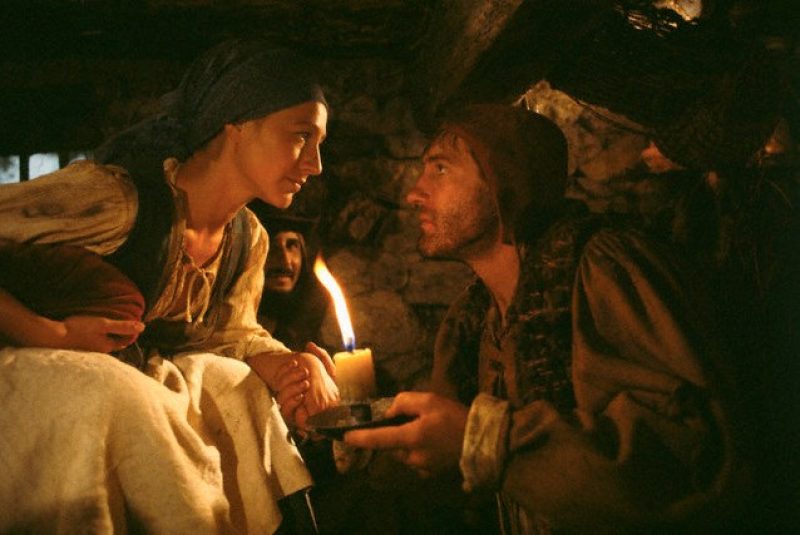Gérard Depardieu is on record as citing the 1981 film “The Return of Martin Guerre” (Le Retour de Martin Guerre) as one of his favourites in a long and illustrious career. The story is based on true events that happened in France in the 16th century but few people have been aware of certain disturbing true events that happened on the set of film
The original events took place in the Ariège department in the Midi-Pyrénées region of south-west France in the 1550s. Following a self-imposed 12-year exile, Martin Guerre returned to his home village of Artigat – back to his friends, his family and, of course, his wife Bertrande. Despite the fact that Martin had changed somewhat over the course of the intervening years, normal life resumed. The Guerres continued their relationship and had two more children together. It was only when Martin went to claim his inheritance from his father (who had died during his absence) that his uncle Pierre began to cast suspicion on his real identity.
When the case went to trial in Toulouse in 1560, there was a dramatic twist when the real Martin Guerre showed up, minus a leg. The usurper’s name was Arnaud du Tilh. He admitted having met the real Martin Guerre on his travels some years previously. Having listened in detail to the stories of Guerre’s life, he played on the strong physical resemblance between the two men. Du Tilh paid for his misadventure with his life and was publicly hanged and burned.Four centuries later, the film Le Retour de Martin Guerre used that story, garnering its co-writer Natalie Zemon Davis the César for the best screenplay. Its success continued ten years later, when the story was adopted by the Americans and remade as “Sommersby”, starring Richard Gere and Jodie Foster.
The original version was filmed in Ariège – where the real story took place – and in the Pyrénées-Orientales, between Saint-Girons and Perpignan. It starred Gérard Depardieu and Nathalie Baye: two actors who were to go on to have very successful careers.
Another rising star of French cinema at the time was Dominique Besnehard. Today, he is one of the most well-known casting agents in France, with a host of prestigious names on his client list. Back on 1981, he was working on Le Retour de Martin Guerre as a casting director for children.
In his book Les Enfants du Cinéma, novelist François-Guillaume Lorrain interviewed Besnehard about his career and asked him if he had any regrets. His reply revealed a shocking story that occurred when he was working on Le Retour de Martin Guerre:
“I’d call it more of a shameful episode than a regretful one. It was in 1981… with the child who played the son of Nathalie Baye and Gérard Depardieu… A few days before the end of shooting, while I was looking for extras, I spotted a fair-haired guy. He was perfect and I took him on. He was called Didier Gentil. He got on really well with the kid straight away. In fact, the two became the best of pals.“We had another few days to do in Perpignan and yourman came with us… But one evening, as I was coming back from a restaurant with Nathalie Bay and Depardieu, I found the youngfella in tears, with marks of beatings on his face. It was a real panic situation. I asked him if he had been abused and he assured me that he hadn’t. I rang his parents and it was very upsetting for them and for me. Together, we took the decision not to pursue the matter legally, even though the guy had split the scene and stolen quite a bit of stuff too. The next day, the kid was filming and he had a big shiner on his eye. I decided to tell the producer that he fell down a stairs.
“But unfortunately, the story didn’t end there. Years later, I was contacted by the police from Marseilles. My name had been given to them by Didier Gentil, who had been arrested in 1988 for the murder of a little girl called Céline Jourdan in the Hautes-Alpes… In his statement to the cops, he had said that the only time in his life where he was happy had been those few days spent on the set of Martin Guerre. All my life, I’ve asked myself the question ‘Why didn’t we prosecute?'”The trial of the former extra had its own twist in the tail just as dramatic as that of the Middle Ages imposter Arnaud du Tilh: up to that point, he had accused an unfortunate wretch named Richard Roman of the murder of the little girl but in the dock, he renounced his false story and, just like du Tilh did all those centuries ago, he begged forgiveness of the court.
Gentil was found guilty in 1992 and sentenced to life with a minimum of 28 years.







 Tootlafrance is Ireland’s fresh new eyes on France, bringing you the latest news, exclusive celebrity interviews, political analysis, cultural events, property news and, of course, travel features written by top Irish journalists.
Tootlafrance is Ireland’s fresh new eyes on France, bringing you the latest news, exclusive celebrity interviews, political analysis, cultural events, property news and, of course, travel features written by top Irish journalists.